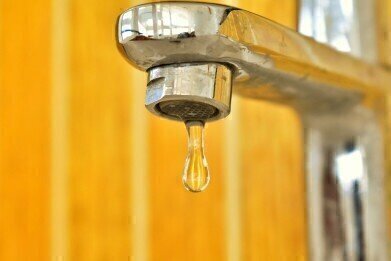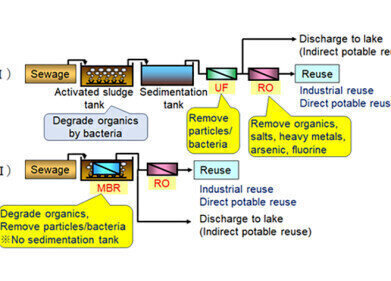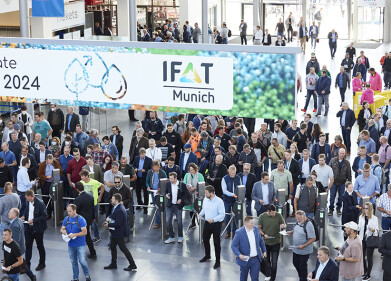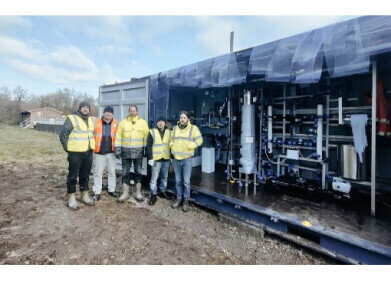Water/Wastewater
What is Greywater Recycling?
Aug 31 2015
Traditionally, the clean, potable water that comes from our taps is known as “white water”, while the dirty, contaminated water being flushed down our toilets and out of the back of our washing machines is known as “black water”. “Greywater”, as the name suggests, falls somewhere in between.
Greywater is neither clean nor toxic – you wouldn’t want to drink it, but there’s no reason you can’t use it to clean your clothes in your washing machine, flush your toilet or water your plants. Greywater aims to maximise the potential of the water we use and minimise the amount of it consumed by capturing that which comes from our sinks, showers and dishwashers and pumping it straight back into our homes for reuse.
If implemented effectively, greywater recycling can save up to half of all of the water used by homes and businesses around the country and the world.
How it Works
Predictions show that by 2050, the inhabitants of the Earth will consume 55% more water than they currently do and use a whopping 70% more energy. Clearly, in order to accommodate for such a need, something must be done to ensure we are getting the most out of our water.
Greywater offers one way to do this by collecting the wastewater from our houses and reusing it for other needs. So why isn’t everyone already doing it? Well, from an industrial point of view, they almost are. Many hotels, sports centres and factories are already operating upon a greywater recycling principle. The sheer volume of water used by these places makes the system viable for them, saving them a huge amount in water bills and reducing their carbon footprint in the process.
However, because the process involves storing water that is essentially contaminated (though not toxic), it becomes a breeding ground for bacteria and disease. Treatments involving filtering, chemical additives or ultraviolet (UV) light (and which are enumerated at greater length in the article The Smart Alternative to Water Disposal) can be costly and time-consuming, making such practices not feasible at the level of the average household.
A Compromise
Full-scale greywater recycling systems are simply unfeasible on normal homes, due to the high costs of installation and maintenance – which are ongoing, thus potentially reducing the house’s resale value. There are compromise systems available, which harvest only the water from your shower and pump it back into your toilet, and which cost smaller installation and upkeep fees. All that is needed is to clean the filter and change the disinfectant, costing an estimated annual fee of £30, and potentially saving as much as a third of the water you use.
However, the real solution lies in water board services. Instead of companies providing water to homes, they should be concentrating on providing a complete service. Imagine if the council or local water body localised all of the water supply and put in place a greywater recycling system for all of the community? Not only would the consumption of water fall dramatically, thus helping the environment immensely, but energy bills would also dip significantly, too.
“Water companies are getting excited because if our greywater systems are deployed widely across a region, you will really start to make a regional difference to water consumption,” explained Stephen Bates, Managing Director of one such firm, ReAqua. “One day, we think the water companies will subsidise the cost of our product, so customers could get it virtually for nothing.”
Events
May 05 2024 Seville, Spain
May 13 2024 Munich, Germany
May 23 2024 Beijing, China
May 23 2024 Beijing, China
Jun 10 2024 Algiers, Algeria













